Photos: Forgotten warriors
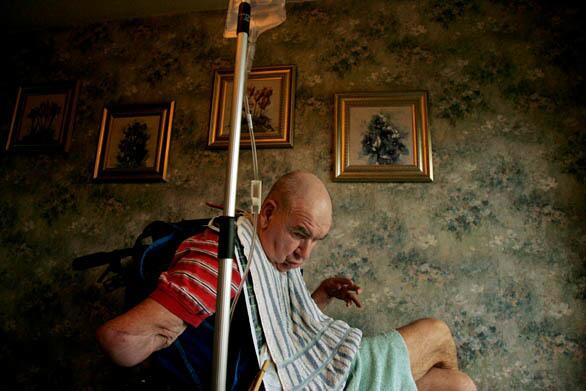
In April 2004, Reggie Lane was driving a fuel truck in Iraq for a defense contractor when insurgents attacked his convoy with rocket-propelled grenades, causing him numerous injuries. For most of the five years since, Lane, now 60, has spent his days in silence, cared for at the Country Gardens Adult Foster Care in Central Point, Ore. (Francine Orr / Los Angeles Times)
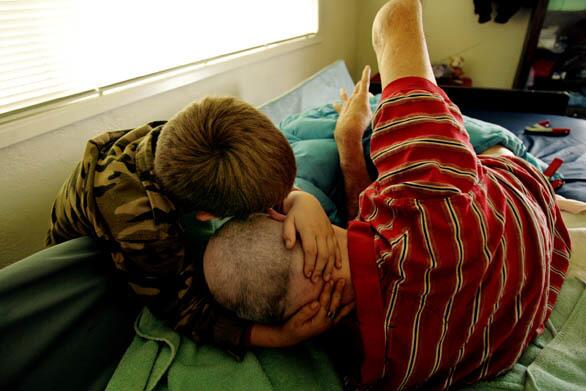
Jonathon Firestone, 7, of Grants Pass, Ore., runs into his uncle Reggie Lane’s bedroom to tattle on his younger sister. After Lane did not respond, Jonathon asked, “Do you think he understands?” He paused for a moment, shrugged his shoulders, then hugged his uncle to say goodbye. Reggie was not able to return the hug. (Francine Orr / Los Angeles Times)
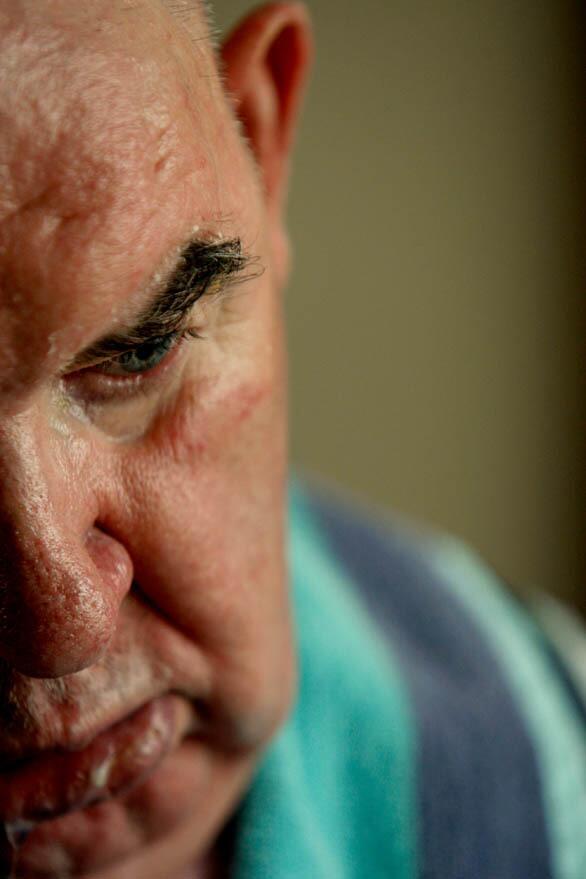
Reggie Lane was one of tens of thousands of civilians who have worked in the battle zones of Iraq and Afghanistan, providing support services and often facing the same dangers as U.S. troops. American contract workers have been mostly men, and primarily middle-aged, many of them military veterans drawn by money, patriotism or both. (Francine Orr / Los Angeles Times)
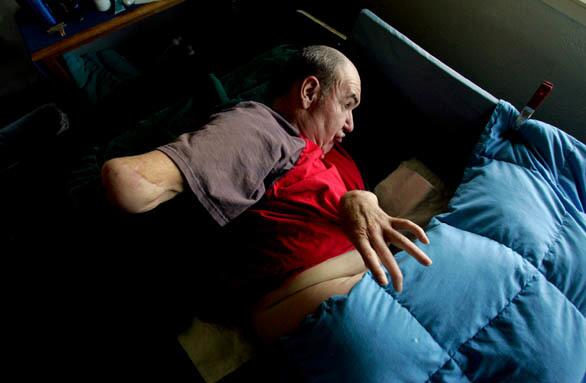
Reggie Lane, 60, a contract truck driver in Iraq who was affectionately known as “Big Dad,” now requires round-the-clock care after injuries sustained in 2004. Here he lays in his bed for his afternoon nap at the Country Gardens Adult Foster Care, in Central Point, Ore. (Francine Orr / Los Angeles Times)
Advertisement
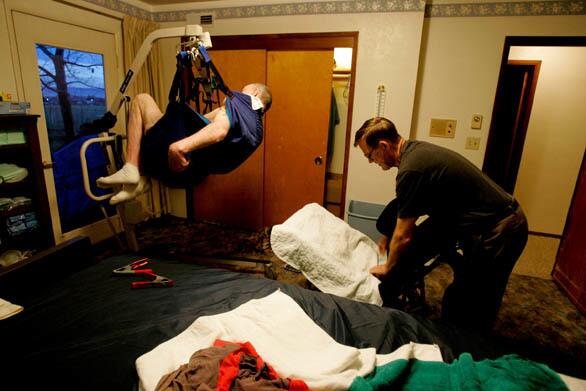
Nurse Jim Gregg rocks Reggie Lane awake as pale dawn light creeps into the room. Cmon now, Cmon, the nurse murmured. Time to get up. Lane groaned angry, wordless protests. Gregg moved fast -- two bursts of deodorant spray under each useless arm. Then he dressed Lane and used a hoyer lift to hoist him into a wheelchair. (Francine Orr / Los Angeles Times)
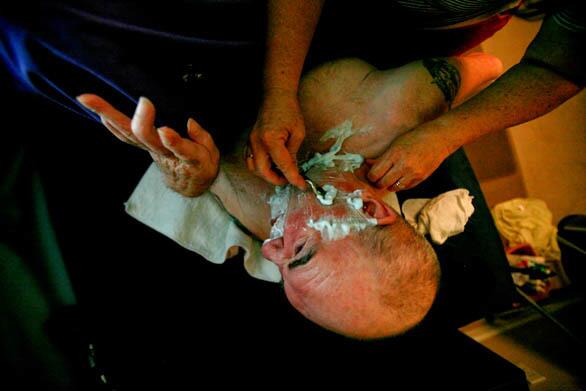
Nurse Bev Glasgow, shaves Reggie Lane at his new adult care home in Eagle Point, Ore. (Francine Orr / Los Angeles Times)
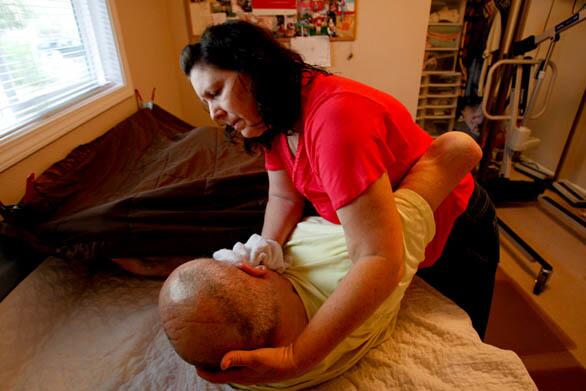
Nurse Bev Glasgow helps bathe Reggie Lane. After Lane was injured in Iraq, he called his wife, Linda, and told her not to worry. I still got one arm left to hug you with, he said. Today he is non-communicative. (Francine Orr / Los Angeles Times)
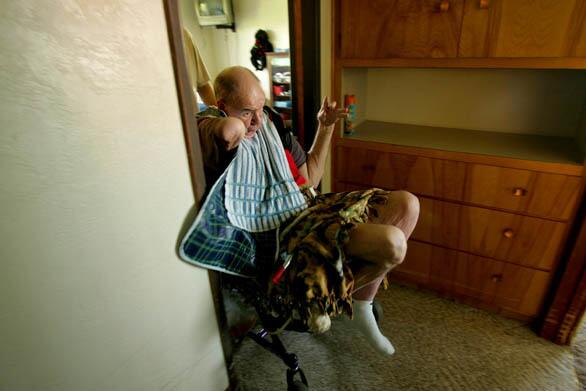
Reggie Lane reacts as nurse Jim Gregg asks him to pull his arm in as he is wheeled through a doorway at his care center. Lanes right arm, above the elbow, was blown off in a grenade attack in Iraq. (Francine Orr / Los Angeles Times)
Advertisement
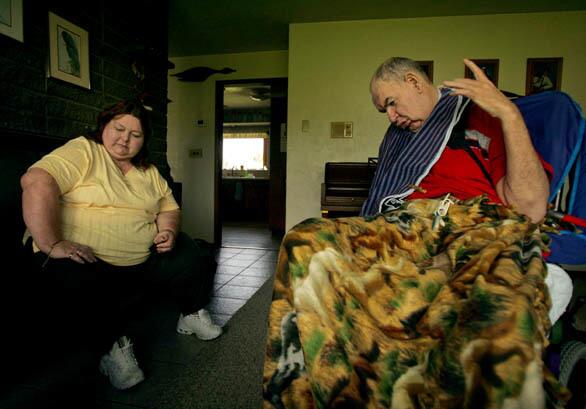
Linda Lane of Grants Pass, Ore., visits husband Reggie at his care center in spring 2007. It is difficult for Linda to go visit Reggie. “When I go to see him, he looks like a broken man with no hope of never having a life again, she said. What price is that worth? You are not dead, and you are not alive. (Francine Orr / Los Angeles Times)
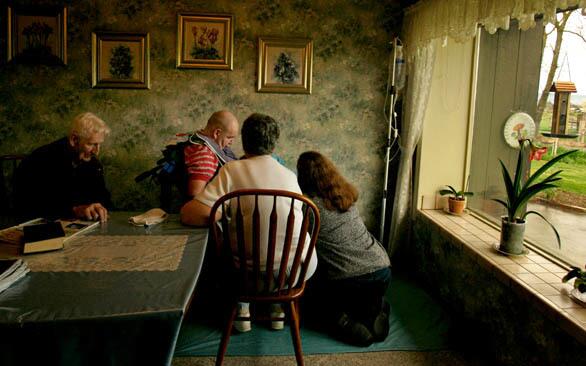
Stepfather Stan Turpen (left), mother Dorothy Turpen (center) and sister Diane Firestone surround Reggie Lane during a visit. Dorothy tried to coax her brother to speak. “Are you going to talk to me or not? You’re supposed to talk to me. Oh, c’mon, I love you.” (Francine Orr / Los Angeles Times)
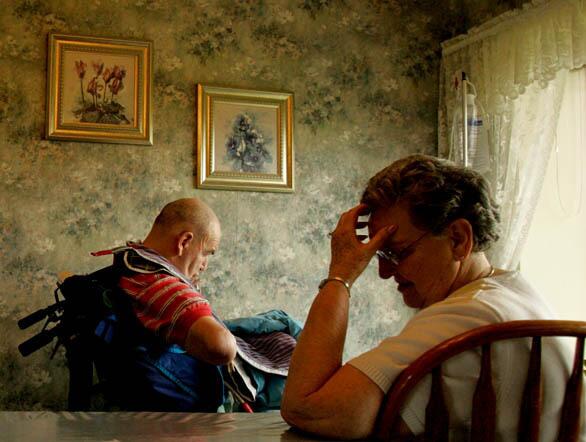
Reggie Lane’s mother, Dorothy Turpen, takes comfort from the words of a Marine at a gas station who told her how much they depended on contract truckers such as Lane. “I said my son was injured. He said we owe so much to those guys in those convoys. We owe them a lot. They bring us our gas, our oil, our food. (Francine Orr / Los Angeles Times)
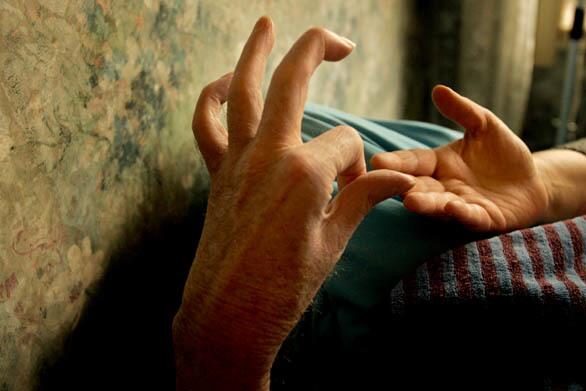
Diane Firestone reaches out to brother Reggie Lane. Are you going to hold my hand today or not? she asked. Lane appeared to grab her hand, curling his fingers around hers. (Francine Orr / Los Angeles Times)
Advertisement
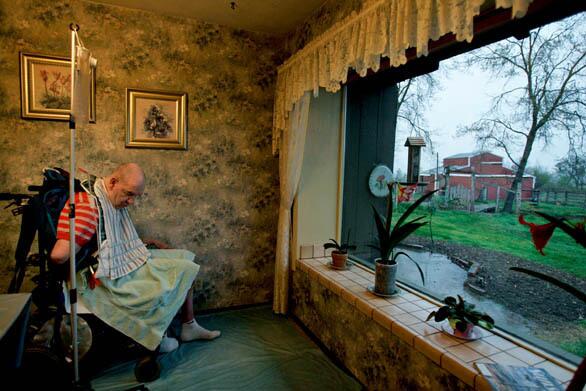
Outside Reggie Lanes window at the Country Gardens Adult Foster Care in Central Point, Ore., stretched a green valley of pear trees filled with white blossoms. (Francine Orr / Los Angeles Times)
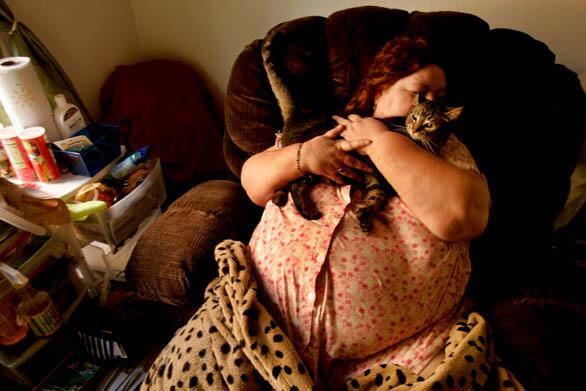
Linda Lane, holding one of her cats at home in 2007, says, You sit in a chair in your home, and you look at the door, and he never walks in. And I wait for that man to put his arms around me and give me a hug and say baby, it’s going to be OK. I don’t ever hear that anymore. (Francine Orr / Los Angeles Times)
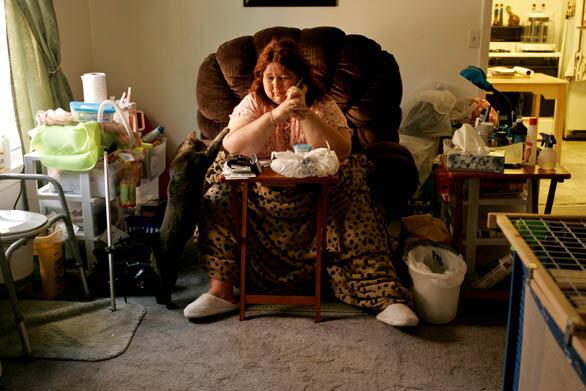
Linda Lane said her husband had called from Iraq. They didn’t feel safe, and they didn’t feel they were being guarded enough. (Francine Orr / Los Angeles Times)
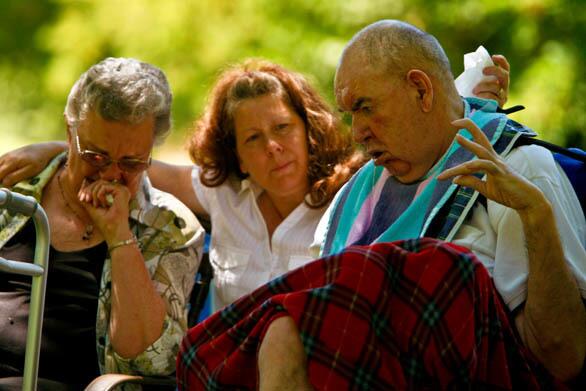
Mother Dorothy Turpen (left) and caregiver Bev Glasgow sit next to Reggie Lane during a memorial service for his wife, Linda, in July 2009. Linda had been hospitalized after suffering respiratory distress. Under the shade of scrub oak and aspen, Reggie watched as Lindas family and friends sang Amazing Grace and looked at old photos of the couple. (Francine Orr / Los Angeles Times)
Advertisement
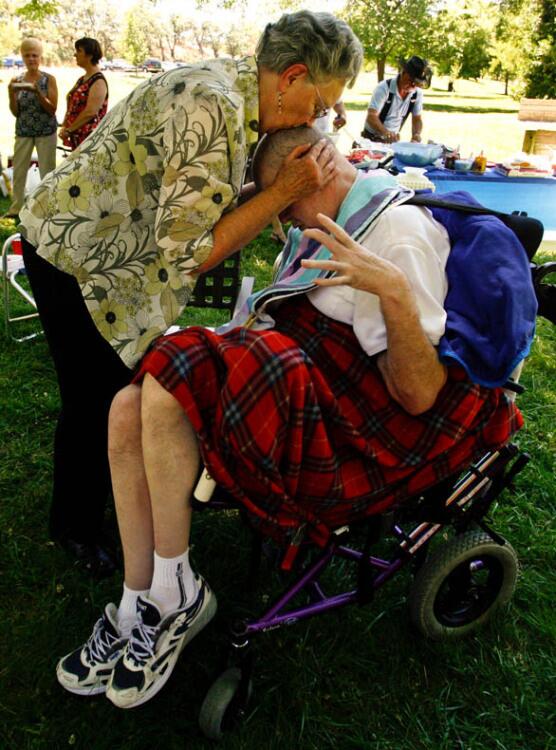
Dorothy Turpen kisses her son on the top of his head after a memorial service for his wife. Lane let out a wail when relatives told him Linda had died. I had never heard anything like that before, said caregiver Bev Glasgow. (Francine Orr / Los Angeles Times)
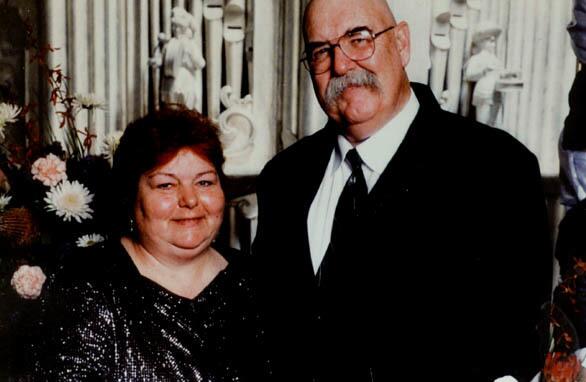
Linda and Reggie Lane before he was injured in Iraq. (Francine Orr / Los Angeles Times)







